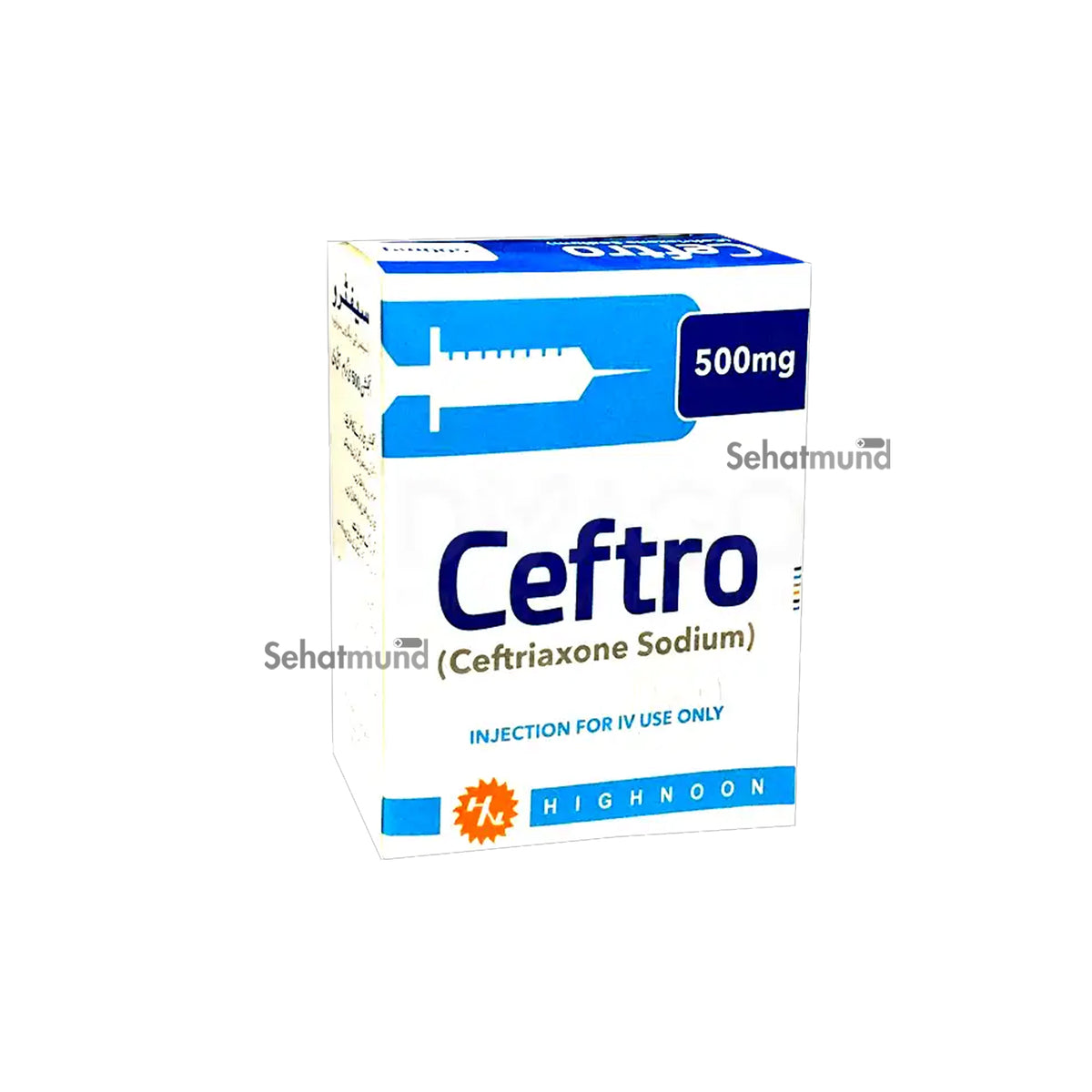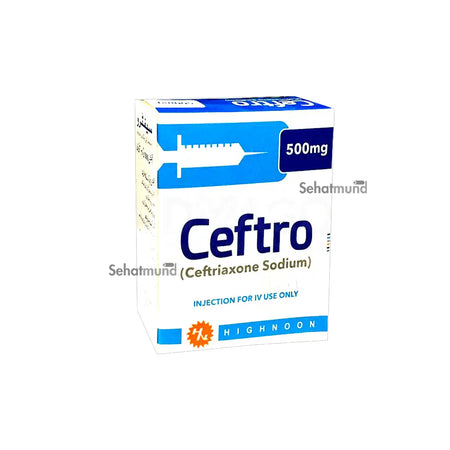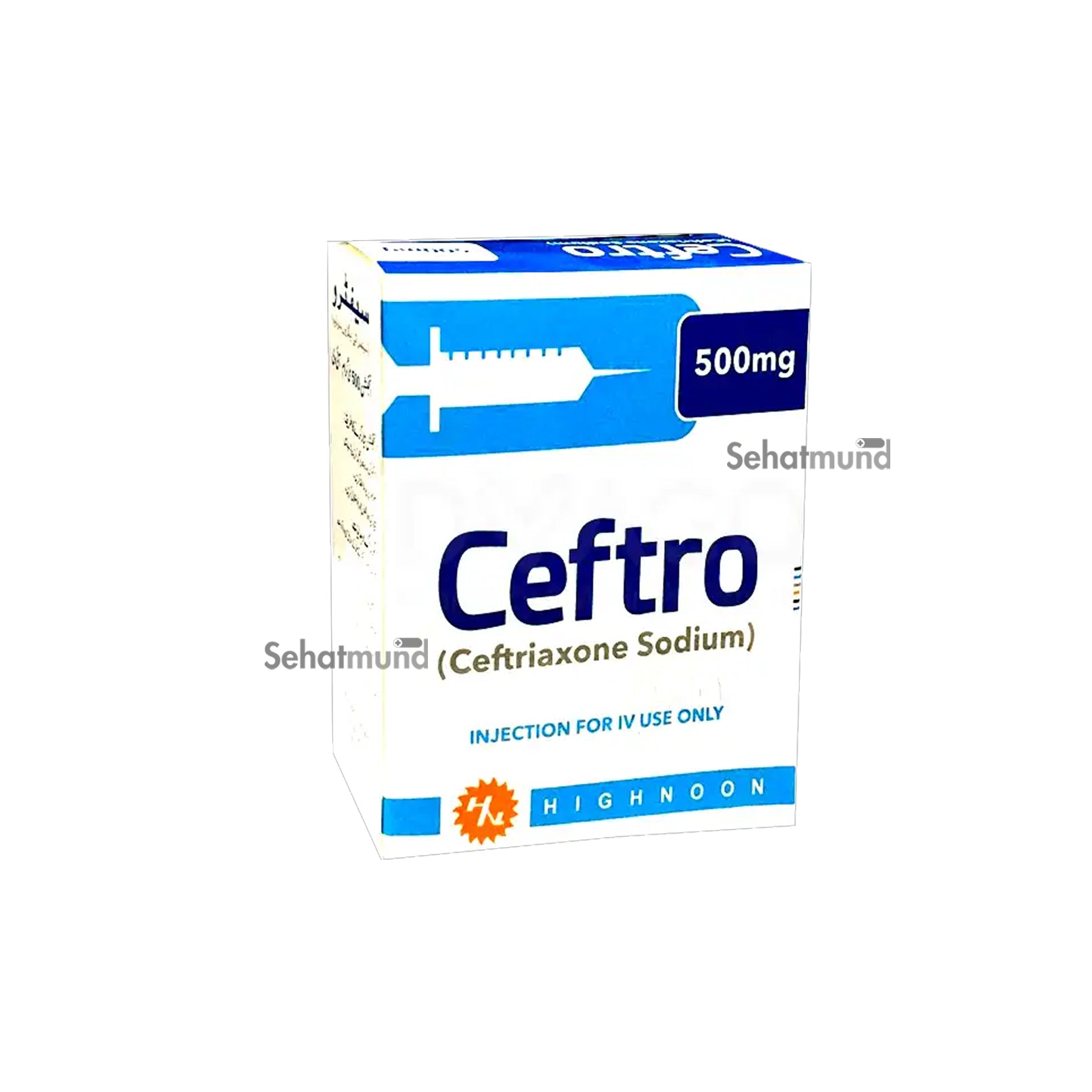Ceftro I.V Injection 500mg
Couldn't load pickup availability
You can promote by sharing on social networks on the links.
Product Description
Product Name: Ceftro I.V Injection 500mg
Product Form: Injection
Pack Size: 1's
Manufactured By: Highnoon Laboratories
Used For:
Ceftro 500mg I.V. Injection contains ceftriaxone, a third-generation cephalosporin antibiotic. It is used to treat a wide variety of bacterial infections, including severe or life-threatening infections like meningitis, sepsis, respiratory tract infections, urinary tract infections, skin infections, bone and joint infections, and sexually transmitted infections like gonorrhea. It is administered intravenously for rapid and effective treatment, often in hospital settings.
Side Effects:
Common side effects of Ceftro 500mg I.V. Injection may include:
- Pain, swelling, or redness at the injection site
- Diarrhea
- Nausea or vomiting
- Rash or itching
- Increased liver enzymes
Less common but more serious side effects may include:
- Severe allergic reactions (e.g., rash, itching, difficulty breathing, swelling of the face, lips, or throat)
- Clostridioides difficile-associated diarrhea (severe, persistent diarrhea)
- Blood disorders (e.g., anemia, leukopenia, thrombocytopenia)
- Kidney or liver dysfunction
- Severe skin reactions (e.g., Stevens-Johnson syndrome, toxic epidermal necrolysis)
- Gallbladder pseudolithiasis (gallbladder sludge)
Precautions:
- Allergic Reactions: Before administering Ceftro, ensure the patient has no known allergies to ceftriaxone, other cephalosporins, or penicillins. If signs of an allergic reaction occur, discontinue use immediately and seek medical attention.
- Liver and Kidney Function: Ceftro may affect liver and kidney function, especially in patients with pre-existing conditions. Regular monitoring of liver and kidney function tests may be necessary during treatment.
- Clostridioides difficile-associated Diarrhea: Antibiotic-associated diarrhea, including potentially life-threatening Clostridioides difficile-associated diarrhea, can occur with Ceftro. If severe or persistent diarrhea develops, the treatment may need to be discontinued.
- Neonates and Infants: In neonates, especially those with hyperbilirubinemia, Ceftro should be used with caution due to the risk of bilirubin displacement and subsequent bilirubin encephalopathy.
- Drug Interactions: Ceftro may interact with other medications, such as calcium-containing solutions, which should not be mixed or co-administered with ceftriaxone due to the risk of precipitate formation. Inform the healthcare provider of all medications being used.
- Pregnancy and Breastfeeding: Ceftro is generally considered safe during pregnancy, but it should only be used if clearly needed. It passes into breast milk in small amounts, so breastfeeding mothers should consult their doctor before use.
- Storage: Store the reconstituted solution as recommended and administer it within the specified time frame to ensure the effectiveness of the medication.



